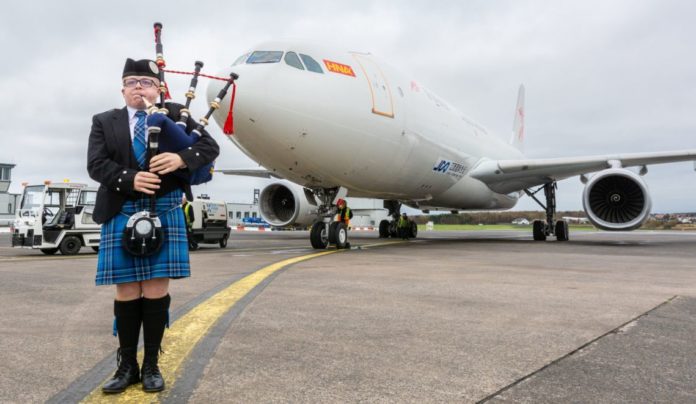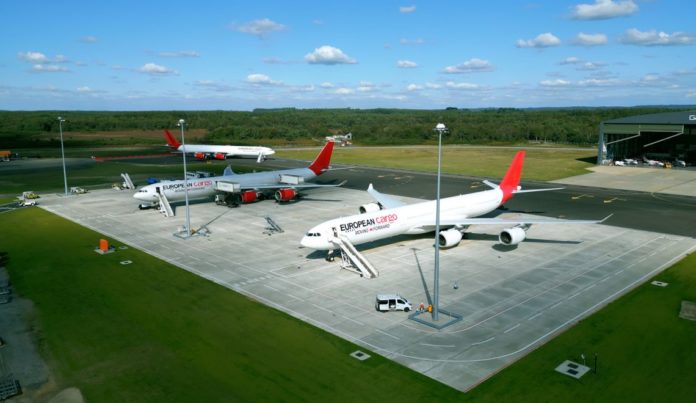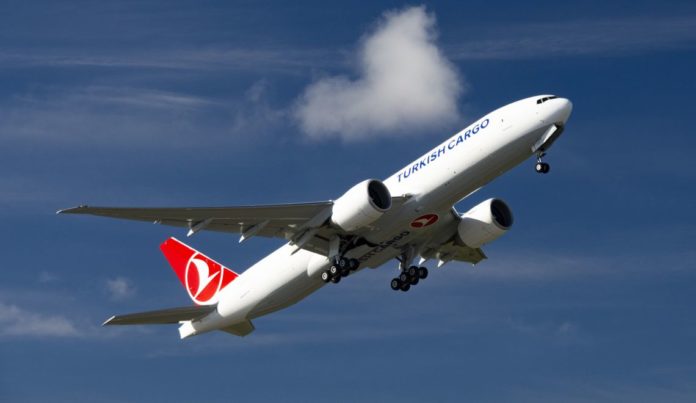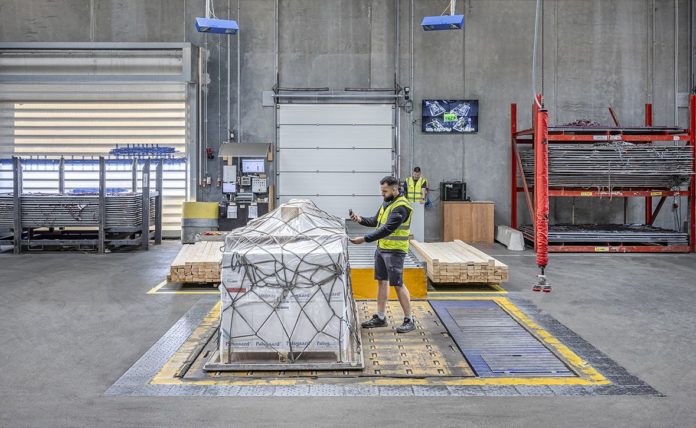Cargo First, the dedicated cargo division of Bournemouth Airport in the south of England, has completed and commissioned new freight facilities at the airport.
The project, part of an ongoing major investment across the estate by owners Regional & City Airports, has delivered three new stands for aircraft up to Airbus A340 size, a 3,000sq m Customs-bonded cargo centre, double the size of the previous facility, a 450sq m powered cargo transit system and landside works including a new 4,000sq m paved area, improved access and new truck parking bays. It is also directly alongside the Airport’s 200-acre business park.
The cargo operation now employs more than 80 staff.
The investment effectively doubles the airport’s cargo infrastructure and consolidates freight operations in a purpose-built zone on the northern side of the airfield, giving scope for future growth.
Airport managing director, Steve Gill, said: “The completion of these new facilities marks a significant milestone for Bournemouth Airport and Cargo First. They not only provide the infrastructure to support our fast-growing cargo business but also reinforce our position as a highly attractive alternative to congested London hubs. With record volumes already passing through the airport last year, this investment underlines our ambitions as the UK’s newest import/export air hub.”
Cargo First handled a record 31,000 tonnes of freight in the 12 months to March 2025, making Bournemouth eighth among the UK’s airfreight airports – a 70% increase on the prior year. Growth was driven by e-commerce imports and exports, with high-value UK-manufactured goods becoming an increasingly important part of the mix.
Chief operating officer at European Cargo, Iain Edwards, one of Bournemouth’s principal freight carriers, said: “The new facilities are a real boost to our business. Bournemouth Airport offers us the flexibility and speed that are critical in air cargo, and the expansion means we can look forward to handling even more volumes efficiently. It’s a huge advantage to operate away from the congestion of the London hubs, while still being able to deliver consignments into the London market faster than if we flew there directly.”
Bournemouth Airport is undergoing a major investment by owners Regional & City Airports, and recently received planning consent for a significant expansion of its passenger terminal and a new transport interchange.



















